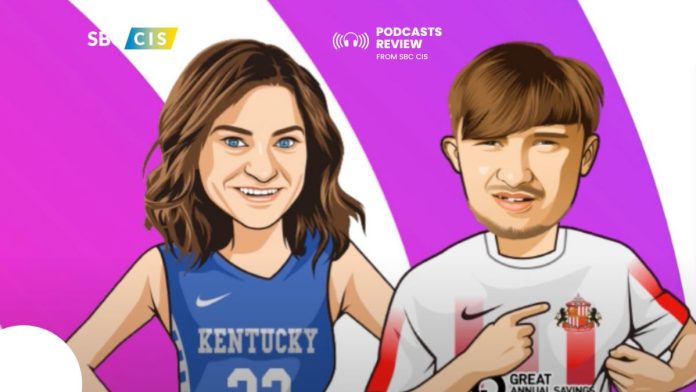It’s that time of year when proud parents and families flock to campuses across the country to celebrate the class of 2023 as they graduate from college and head on out into the real world. But commencements aren’t the only reason colleges have been in the spotlight this week in the USA. Sports betting news headlines have been dominated by colleges, whether it’s a number of college-age bettors, marketing partnerships between sportsbooks and universities, or what needs to be done to better protect student-athletes as the industry expands.
In the latest episode of iGaming Daily, Jessica Welman, the Editor of SBC America, and Senior Journalist of SBC Charlie Horner talked about college and betting and how it works in general.
One of the more important topics in the podcast was the rupture of relations between betting companies and colleges in the United States. In particular, the deals between Caesars and the universities had been heavily criticized and faced pressure for termination. As a result, Caesars broke off its deals with the University of Michigan and Louisiana State University (LSU).
In March the American Gaming Association (AGA), an industry group, updated its responsible marketing code to prohibit gaming companies from having partnerships with universities to promote sports betting. Since then, several schools have said they were ending similar advertising agreements with gaming companies.
Jessica Wellman pointed out that it’s not the schools themselves usually that are making these deals with the sportsbooks, it’s their media rights management companies. In this case, a company called Playfly Sports manages both LSU and MSU and came to Caesars. And the main idea behind these partnerships was to leverage the large population of alumni associated with these schools.
Recently, Charlie Horner also had a conversation with Casey Clark, Senior Vice President of AGA, where they discussed the NCAA surveys conducted on sports betting and students.
The research revealed that 60% of college students in the survey had participated in sports betting in the past year, which raised concerns considering that the survey specifically focused on 18 to 21-year-olds who are typically not legally allowed to bet. Another significant finding was that 57% of students had encountered sportsbook ads at casinos, sportsbooks, or on their phones, and notably, 53% of respondents stated that these ads made them more inclined to place bets, while only 20% felt it would make them less likely to do so.
Additionally, Wellman draws attention to the absence of an educational program similar to those addressing drug abuse, excessive drinking, and sex education. “We have education programs for all these things, but there is no education program for how out of gambling as entertainment and avoiding the pitfalls of problem gambling”.
There is also a need not only to educate college students in general but also to address the unique risks faced by student-athletes and ensure their protection. Organizations like Epic Risk Management actively engage with colleges and speak to both athletes and students, providing valuable education about the risks associated with gambling.
The US also has college prop betting, when you are betting on the performance of a specific athlete in a collegiate athletic event, which is considered ripe for manipulation and something that should be moved away from.
“If you’re offering that on a smaller school scale, that’s an athlete who could very easily be approached and manipulated and also who maybe hasn’t been given the education necessary about how to speak about what’s going on with the team,” Wellman said.
That’s why the U.S. Integrity creates a platform that aims to address issues related to athlete abuse and sports betting integrity, providing a safe space where athletes can report incidents, seek support, and ask questions.
Don’t forget to subscribe to our Telegram-channel!










